Iran Says Efforts Underway To Release Another Regime Convict
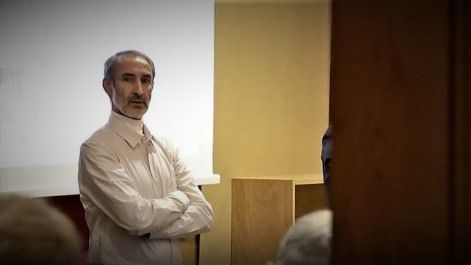
Iranian authorities say efforts are underway to release Hamid Nouri, a former Iranian jailor who is serving a life sentence in Sweden.

Iranian authorities say efforts are underway to release Hamid Nouri, a former Iranian jailor who is serving a life sentence in Sweden.
Nouri, 61, was given a life sentence last July for his leading role in the massacre of large numbers of jailed opposition members at Gohardasht Prison in July and August 1988.
Askar Jalalian, Deputy Director of International Affairs and Human Rights at the Ministry of Justice, called prospects of his release "good news”.
The development comes after Iranian diplomat Assadollah Assadi, convicted of terrorism, was freed on Friday in exchange for a Belgian aid worker, causing global outrage.
Assadi, a former attaché at the Iranian embassy in Austria, was convicted of plotting to bomb a gathering of the exiled opposition group Mujahedin-e Khalq Organization (MEK) near Paris on June 30, 2018.
Belgian Olivier Vandecasteele, who was detained in 2022 and sentenced to 40 years in prison and 74 lashes for alleged “spying and cooperation with the United States, money laundering and smuggling $500,000 out of Iran,” was also released as part of a deal mediated by Oman.
Critics of the deal warned that such a treaty would effectively establish Belgium as a “sanctuary country” for terrorist operations, and a haven for Iranian intelligence services to maintain a European command center, setting a dangerous precedent for the future.
Iran has become notorious for its ‘diplomatic hostage taking’ and the latest developments are causing alarm among rights groups and international diplomatic circles that the tactic is succeeding.
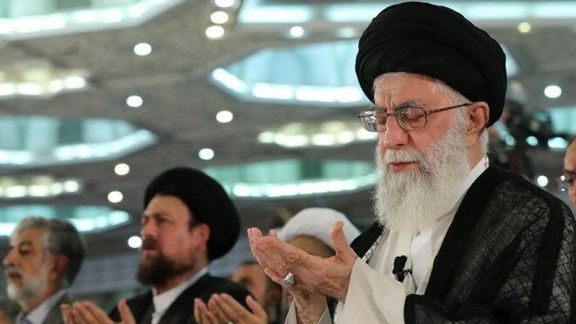
Recent media reports in Iran indicate that local observers are increasingly convinced the revival of the 2015 nuclear deal (JCPOA) is impossible.
The latest report in reformist daily Shargh on the issue, which has also been carried by other media outlets such as Iran Diplomacy and Rouydad24, says some officials have been considering alternative solutions.
Shargh relying on recent statements by several Iranian politicians and pundits said that perhaps the best route to resolve the nuclear dispute is direct talks between Iran and the United States, something that Supreme Leader Ali Khamenei has forbidden.
While several Iranian and international observers are still considering Khamenei's latest reference to "heroic flexibility"as an allusion to the feasibility of an agreement with the West, his reference to the Shiite principle of Taqiyyah based on which Shiites can prudently hide their real beliefs and goals, and his explanation that heroic flexibility is "a way of circumventing a rock on the way of your progress" put an end to all hopes about a possible softening of Iran's stances.
In other words, for Khamenei nuclear talks are a means to neutralize foreign opposition while following his real objectives.
As a result, some observers characterized Khamenei's rhetoric as a double-edged guidance to Iranian diplomats. It is characteristic of Khamenei to make statements in order to evade responsibility if his suggestions lead to a failure and to claim victory if they happen to gain something for the Islamic Republic.

In the meantime, Iranian officials including Foreign Minister Hossein Amir-Abdolahian make occasional statements about secret talks with the United States. The latter has repeatedly refuted such statements and labelled them as lies.
In one of the latest developments, five years since the collapse of the JCPOA nuclear talks, dozens of ex-US diplomats have called to end diplomatic overtures to Tehran.
The report in Shargh said that boosting of Iran's nuclear activities since 2021 is one of the reasons why observers believe that the JCPOA can no longer be revived. Another obstacle is Iran's insistence on its financial demands before returning to the negotiations. However, a key problem is that the deadlines to lift the embargo on Iran's missile development and nuclear activities respectively in October 2023 and 2025 are getting closer quickly.
Shargh noted that the current 5+1 has no similarity to the P5+1 in 2015. There is a vast divide between Russia and the four Western partners of the JCPOA and the relations between China and the United States are no longer friendly. Changes have even occurred between the four Western partners. Last March the three European partners demanded an IAEA resolution against Iran, but the United States disagreed with them, which was a reversal of roles compared to the past. In the meantime, Iran's involvement in Russia's war against Ukraine has also changed many things. No one in the West supports the lifting of sanction on Iran, and doing so will be costly for Western governments.
In this situation, the Biden Administration has said that "The JCPOA is no longer on the agenda, however, the problem with Iran can be solved only through diplomatic ways." The policy of "neither JCPOA, nor crisis" just gives Biden one less subject to worry about. At the same time, some Western officials have been talking about an interim agreement or "less for less," Iran has not yet agreed with that.
Meanwhile, Israel's insistence on posing a "valid military threat" against Iran's nuclear program and two joint military exercises with the United States in November 2022 and January 2023 have made the matter even more complicated.
Under the circumstances, according to experts quoted by Shargh, Iran's constant rhetoric about its readiness to return to the JCPOA and its continued efforts to boost its nuclear capabilities exert pressure on the West. At the same time, unwanted consequences are also probable in the absence of a dialogue.

Oman’s sultan arrived in Iran on Sunday for a two-day visit and met with President Ebrahim Raisi in a visit expected to focus on regional diplomatic and security issues.
The visit by Sultan Haitham bin Tariq al-Said came two days after Muscat mediated a prisoner swap between Iran and Belgium.
Oman has traditionally been an interlocutor between the West with the IslamicRepublic and has mediated the release of several foreign citizens and dual nationals held hostage by Iran.
On Friday, Oman helped secure the release of a Belgian aid worker, who was arrested in 2022 and sentenced to 40 years in prison and 74 lashes on trumped-up charges including spying, in exchange for Iranian diplomat and intelligence agent Assadollah Assadi sentenced to 20 years in prison for a failed bomb plot in France against exiled opposition group Mujahideen-e Khalq (MEK).
Dozens of foreigners and dual nationals still remain in jail in Iran, most facing espionage and security-related accusations. Rights groups have criticized the arrests as a hostage-taking tactic by Tehran to win concessions from the West.
Iran and Oman on Sunday signed four documents to improve cooperation in various sectors in the fields of e economic, energy and investment as well as free economic zones.
The documents were inked by Iranian ministers of petroleum, economic affairs and finance as well as the secretary-general of the Supreme Council of Free Trade-Industrial and Special Economic Zones and Omani minister of energy, finance and trade.
The visit comes as Iran also faces renewed criticism of its human rights record and its supply of drones for the Russian invasion of Ukraine.
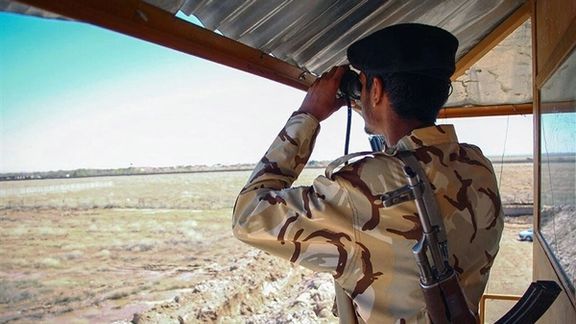
Amid escalating tensions with Afghanistan, the Iranian regime has sent senior military commanders to restive areas as the Taliban took control of aborder post.
Clashes at the border on Saturday over water rights claimed the lives of at least two Iranians and one Taliban soldier. According to a report by Iranian reformist daily newspaper Ham-Mihan, about 50 Iranians have been killed in border regions since 2020.
While Taliban forces gave thanks to God after allegedly seizing a guard post inside Iranian territory on Saturday, two senior Iranian military officials have been visiting the region.
Despite Iran saying the clashes are over and the situation is in control, Taliban sources have released videos of capturing an outpost inside Iran.
Qasem Rezaei, deputy commander of Iran's Law Enforcement Forces and Kiumars Heydari, the Commander of the Iranian Army's Ground Forces, travelled to Sistan-Baluchestan province bordering Afghanistan to probe the situation. Both officers are sanctioned by the United States.
Sistan-Baluchistan, with a hot and arid climate, is populated by less than 3 million people, most of whom are ethnic Baluch who are Sunni Muslims, in contrast with the Shiite majority in Iran. Poverty and under-development plague the region.
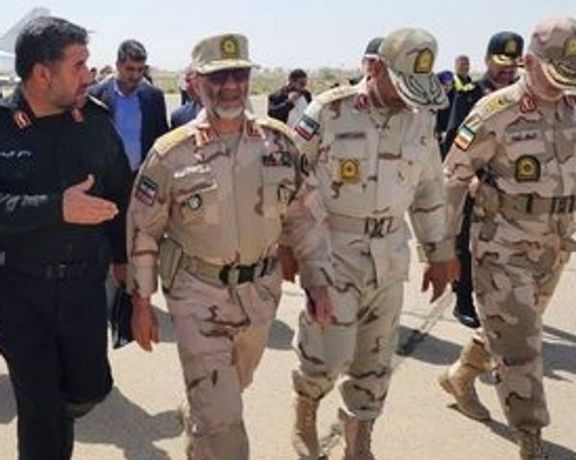
Heydari said, “The common borders with Afghanistan are fully under the control of the army's ground forces... and security is fully established,” adding that “it has been pointed out many times that our presence at the border does not mean that there is any danger threatening us, but … security is maintained at the borders.”
“There may sometimes be a difference between the two border guards, which is not an important issue, and the situation is completely under control,” he added.
“Our comrades in border guards and ground forces are completely dominant in the region, and as long as Afghanistan’s forces respect international regulations, we will show mutual respect and maintain the policy of good neighborliness,” but if the other side does not want to comply with the regulations, Iranian forces will encounter them, he said.
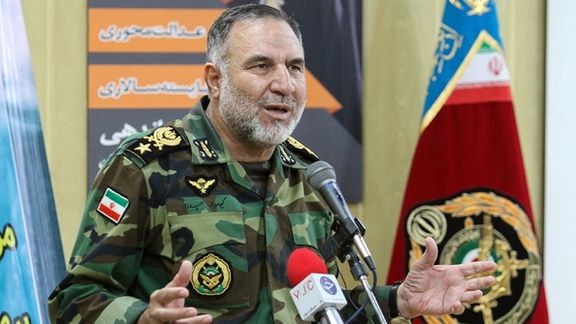
Mohammad Baset Dorrazehi, the former parliament member representing the province, said, “I said many times that local soldiers should be used for this region. Non-natives are not familiar with the environment and even in terms of climate, they cannot tolerate these conditions."
At least three sources from the Taliban confirmed to Afghanistan International that during the conflict, the fighters of this group had entered the territory of Iran. However, the Taliban did not confirm or deny the report of the capture of the Iranian outpost.
In response to Afghanistan International's question about reports on the clashes, a Taliban source said: "The Taliban do not joke in war."
The Taliban's Interior Ministry spokesman says the group does not seek to engage in a war with Afghanistan's neighbors.
Amid escalating tensions, Iran’s Border Guard and the Taliban exchanged heavy gunfire on Saturday on the Islamic Republic's border with Afghanistan. Iran says its forces inflicted “heavy casualties and serious damage”.
Disputes between Tehran and Kabul have risen over the Taliban’s obstruction of Iran's access to Helmand River water in violation of a 1973 treaty.
Iran has accused Afghanistan's Taliban of violating a 1973 treaty by restricting the flow of water from the Helmand River to Iran's parched eastern regions, an accusation denied by the Taliban.
"Today, in Nimroz province, Iranian border forces fired toward Afghanistan, which was met with a counter-reaction," spokesman for the Taliban-run interior ministry, Abdul Nafi Takor, said in a statement.
"The situation is under control now. The Islamic Emirate does not want to fight with its neighbors," the spokesman said, without identifying the victims.
A Taliban defense ministry spokesman said the Taliban "considers dialogue and negotiation to be a reasonable way for any problem. Making excuses for war and negative actions is not in the interest of any of the parties.”
Earlier in May, Iranian President Ebrahim Raisi warned the Taliban over disregarding Iran's water rights under the 1973 treaty. The Taliban rejected Raisi's perceived threat, with a former Taliban official mocking Raisi in a video that went viral.
Last week, Iranian media reported that five Iranian border guards were killed following a "terrorist" attack by several people who were trying to enter Iran from the Pakistan border.
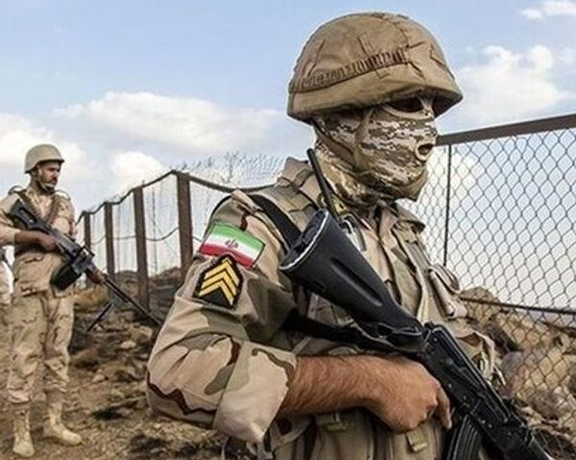
At least 50 Iranian servicemen have been killed on Iran’s borders in the past three years, Ham-Mihan newspaper in Tehran reported Sunday.
The information was published one day after two Iranian soldiers died during clashes with Afghanistan’s Taliban forces on the eastern borders of the country.
The newspaper quoted a former lawmaker representing the restive eastern Sistan-Baluchistan province as saying that he had urged the armed forces and law enforcement during his tenure in parliament to station servicemen from local regions on the border, who know the culture and the terrain.
Soldiers from other areas of the vast country and cities are totally unfamiliar with the dangerous regions on Pakistan and Afghanistan borders, where a lot of drug smuggling takes place.
The lawmaker added that on occasions Iranian soldiers “got so disoriented that by mistake they entered Pakistani territory and into traps set for them.”
Sistan-Baluchistan, with a hot and arid climate, is populated by less than 3 million people, most of whom are ethnic Baluch who are Sunni Muslims, in contrast with the Shiite majority in Iran. Poverty and under-development plague the region.
The Sunni Baluch rallied against the government in September 2022, when nationwide protests engulfed Iran after the death of Mahsa Amini in hijab police custody. Security forces killed nearly 90 civilians in Zahedan, the center of the province on September 30 and weekly protests continue for equality and freedoms.
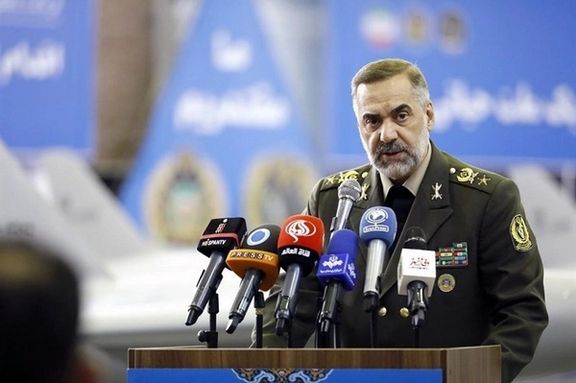
Amid Western objections over Iran’s arms supplies to Russia, Tehran’s defense minister claims the regime “has no restriction” on exporting and importing weapons.
Brigadier General Mohammad-Reza Ashtiani made the remarks in an interview with Revolutionary Guards-affiliated Tasnim news agency on Sunday, not explaining how this is translated into reality under the US and EU arms embargoes on the country.
“We have no restriction on supplying equipment to [other] countries. We are in contact with all states and keep this contact with our might,” he said and asserted that there is no ban on Iran for buying defense equipment.
However, due to concerns over Iran's nuclear program, in addition to earlier US measures, the EU imposed a full arms embargo on Iran in 2007, which remains in place even after the UN Security Council-imposed restrictions on arms exports to Iran were lifted in October 2020.
The EU sanctions included a prohibition on the direct or indirect supply, sale or transfer of items, materials, equipment, goods and technology, ammunition, military vehicles, paramilitary equipment, and spare parts of all types. Its scope differs from the UN arms embargo in that it includes all types of arms and not only those defined by the UN Register of Conventional Arms.
As part of an international agreement on the Iranian nuclear program, the Joint Comprehensive Plan of Action (JCPOA) of 14 July 2015, the EU agreed to lift its missile technology and arms transfers embargo on Iran eight years after the International Atomic Energy Agency (IAEA) would provide a report to the UNSC to conform that Iran has taken the actions related to its nuclear program specified in the JCPOA.
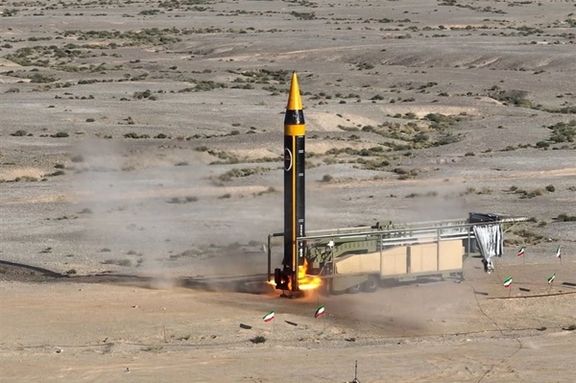
Therefore, the EU embargoes are scheduled to remain in place until 18 October 2023, and will also be lifted if and when the IAEA reaches the so-called 'Broader Conclusion' in which it determines that all nuclear material in Iran remains in peaceful activities. Such a confirmation has not happened yet, and its prospects seem very dim, considering the fact that Iran is enriching uranium above the levels specified in the JCPOA and has been advancing its ballistic arsenal disregarding its commitments.
On Thursday, Iran unveiled its newest long-range ballistic missile, prompting France and the US to condemn the move as a violation of the United Nations Security Council resolution 2231 of 2015 that endorsed the Iran nuclear deal.
However, it seems that the Islamic Republic feels confident about counting on its allies for arms exports and imports, such as Russia and Venezuela.
Elsewhere in the Sunday interview, Defense Minister Ashtiani said, “The Islamic Republic will help any country that remains committed to international security and peace,” without elaborating how Russia is committed to international peace given its war in Ukraine.
Referring to reports about Iran’s plans to buy Sukhoi Su-35 Russian-made single-seat, twin-engine fighter jets, he said that “if we feel the need…we try to get technological facilities or equipment from any country that possesses them.”
Despite reports indicating a possible shipment of Sukhoi Su-35s in the near future, Ashtiani said “The discussions about the Su-35 fighters are mostly speculations,” adding that some deals may yield a result years after their signing.
Last September, Commander of the Iranian Army’s Air Force Brigadier General Hamid Vahedi said Iran has no plans to buy Sukhoi 30, but it has rather put on its agenda the purchase of Su-35 fighters. In January, Iranian lawmaker Shahriar Heidari said that the Su-35 jets were to arrive in the current Iranian calendar year, which began on March 21.
Ashtiani also referred to a 20-year partnership agreement signed between the Islamic Republic and Venezuela last June to expand ties in various sectors, including military. He said that the defense ministry is coordinating in different fields, among them security and defense.